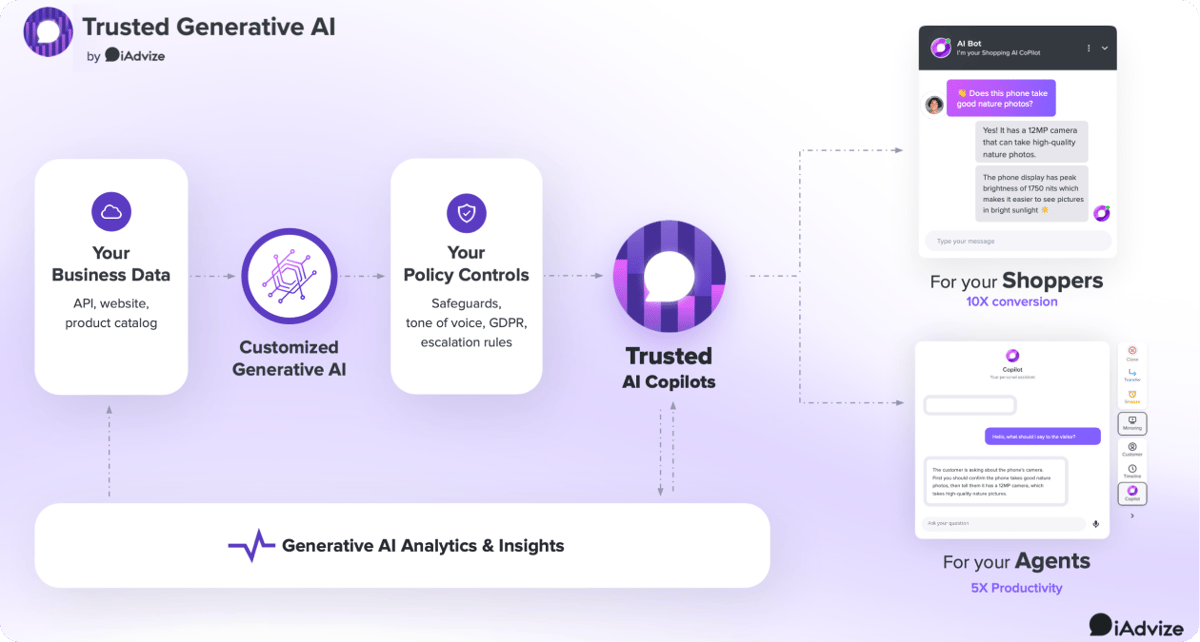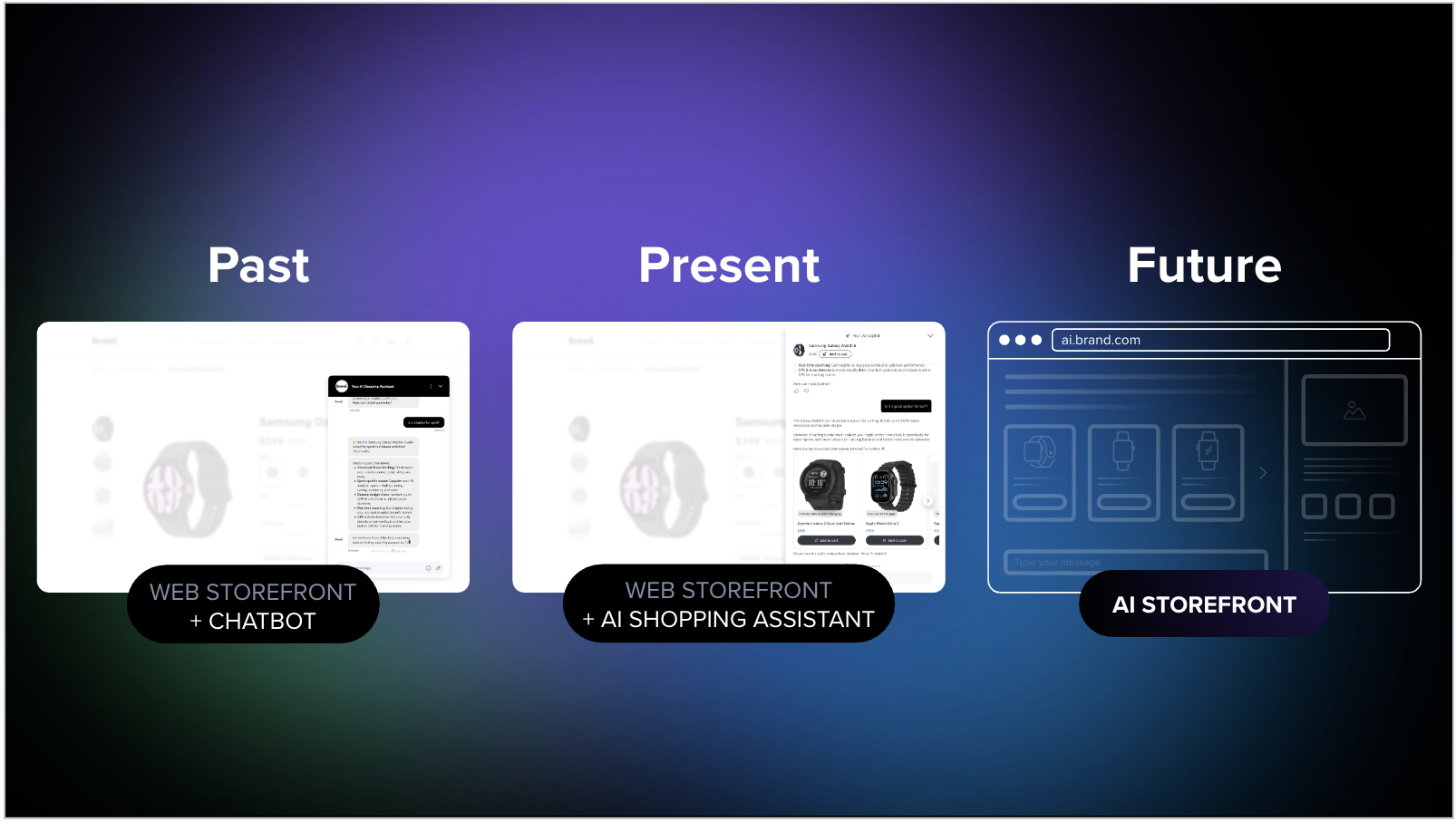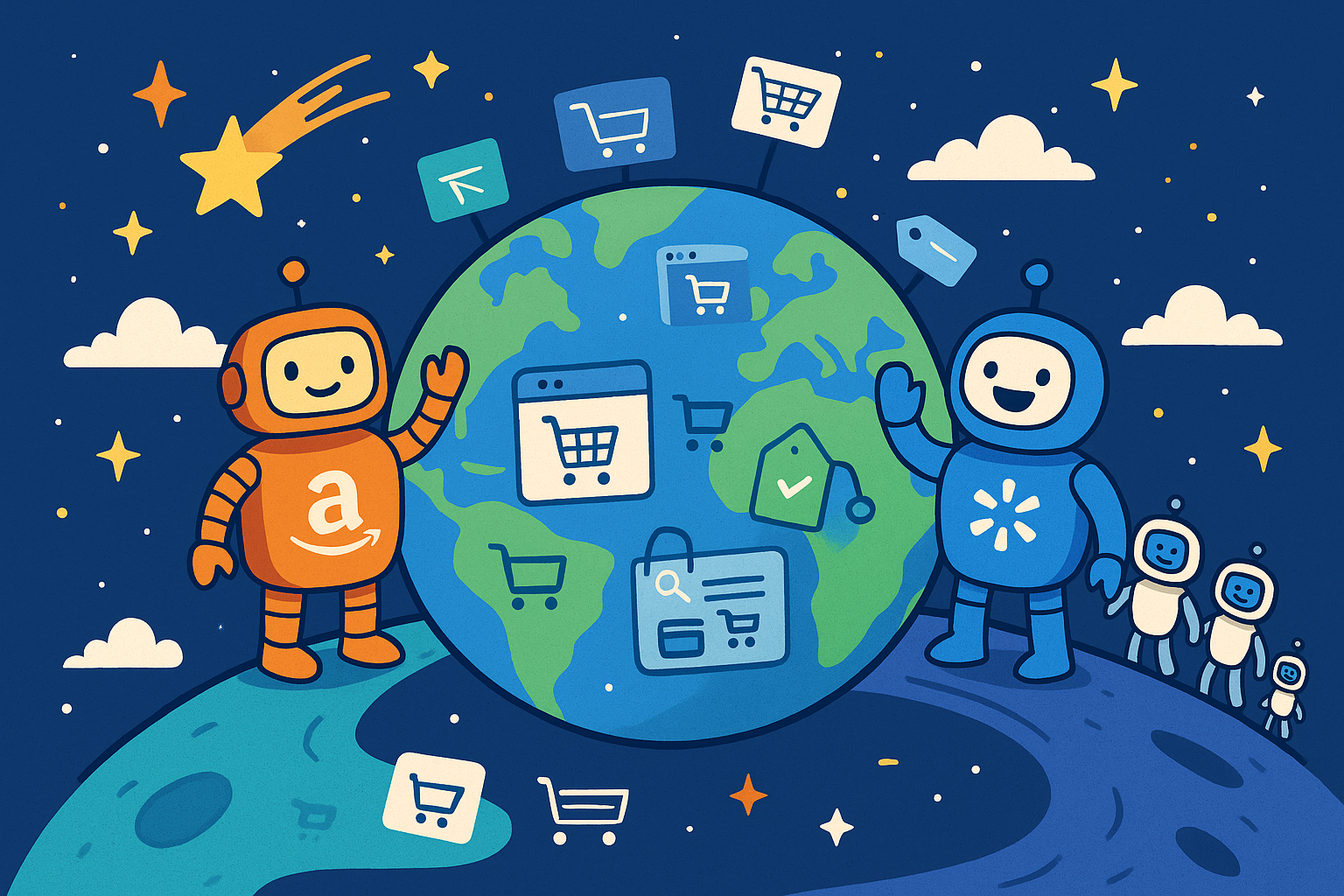Generative AI for E-Commerce: How to Ensure Data Compliance
iAdvize

The world of e-commerce is rapidly moving towards adopting the use of generative artificial intelligence (AI) in the customer experience. After investing in predictive AI over the past few years to offer personalized product suggestions, optimize inventory management, and improve sales forecasts, the focus is now on transforming the online conversational experience between brands and their customers. Generative AI, first made available to the public through OpenAI's ChatGPT application and has since shown significant advancements, uses natural language to instantly produce relevant text responses. As this technology becomes commonplace, it raises concerns about data privacy for e-commerce businesses. Is generative AI entirely compliant with the laws and regulations surrounding e-commerce and the internet? This article provides an in-depth exploration of the compliance challenges posed by generative AI and provides practical solutions to address these issues.
Understanding the Different Types of Generative AI
Generative artificial intelligence is changing the game by allowing you to efficiently manage conversations on your website on a massive scale, boosting your sales and performance. However, to untangle the stakes and myths surrounding generative AI for e-commerce, we first need to understand exactly what this technology is.
ChatGPT is Just One of Many Generative AI Tools
ChatGPT has become incredibly popular in recent months and has helped bring generative AI technologies to the attention of the general public. Where confusion tends to occur is the distinction between ChatGPT and generative AI as a whole, as ChatGPT is not the only generative AI on the market. It’s just one of the first public versions of the AI technology created by OpenAI LLC.
At this point, you’ve surely experienced the impressiveness of GPT 3.5 or 4. These versions are revolutionizing practically every profession and industry, including marketing, e-commerce, and customer support. However, the public version of ChatGPT is not the most suitable generative AI for use in online commerce companies when it comes to security and performance issues. It carries risks and is currently under investigation by more than 20 data protection authorities. It has also been banned in some workplaces, including tech giants like Amazon and Apple.
How to Choose a Generative AI That’s Suitable for E-Commerce
E-commerce players need applications based on trustworthy generative AI models, which use and protect private data while leveraging the power of AI. Since so many large language models (LLMs) exist, a holistic approach to choosing one for your business is key. Take the time to explore every model available and narrow down your list to the ones that will provide you with maximum business guarantees.
Our conversational platform uses technology based on Microsoft Azure OpenAI's AI. It’s completely separate from OpenAI's public model in that it’s private, paid, and uses different privacy parameters.
This partnership was implemented with Microsoft Azure for three core reasons:
- Reliability
- Security
- Long-term performance potential
Ensuring Full Control of Generative AI in E-commerce
Many misconceptions about generative AI are already circulating, like it’s potential to be out of control. Subsequently, one of the major challenges to making AI compliant for use in e-commerce is ensuring that the solution can be completely controlled.
Recognizing Generative AI’s Limits
It's important to understand that some generative AI solutions are prone to hallucinations, meaning they can invent elements or respond with inaccurate information. Why? Because the ultimate goal of many generative AIs is to provide an answer at all costs, even if it must invent or provide incorrect information to do so.
For businesses, this is entirely unacceptable. Can you imagine the AI-powered chatbot on your e-commerce site providing inaccurate product details or suggesting features that aren’t actually available? This is why we've spent the past few months analyzing these limitations in order to solve them, creating a generative AI solution that’s fully compliant with your brand and your rules.
Strategies to Overcome Generative AI’s Challenges
There are two main things you can do to control AI’s behavior and the content it produces:
- Master the art of the prompt:
‘Prompts’ are simply the instructions you give when asking an AI algorithm to generate text. The more well-constructed and precise you make your prompts, the more likely you are to avoid AI drift and hallucinations. The same goes for a generative AI-powered bot on an e-commerce website—improving the quality of the questions you ask, and even asking it to only pull from information you provide, will reduce the potential for inaccuracy.

- Add additional supervision tools:
The generative AI on our conversational platform can be supervised in real time, allowing for continuous refinement. This, coupled with a constant human feedback loop, plays an important role in AI behavior control. The incorporation of even more supervision capabilities will only further enhance your control. For the iAdvize generative AI, for example, it must instantly escalate a request to a human respondent when it doesn’t know the answer.
The Keys to Data Protection-Compliant Generative AI
The burning question on the mind of every Data Protection Officer is whether a generative AI solution is compliant with government regulations, like GDPR and CCPA. High-profile data leak cases have put the entire profession on high alert, and rightly so. However, in cases like this, it’s important to differentiate between the technology and its applications. iAdvize’s Trusted Generative AI for E-Commerce is made fully compliant through a comprehensive list of specifications on how it can or cannot be applied.
Legal Obligations and Data Hosting for a Compliant Generative AI
To ensure your company's data protection compliance, iAdvize hosts and stores data on European soil for 30 days. This is because Microsoft Azure has committed to respecting the "Microsoft EU data boundary", and doing so helps prevent fraud. After that, our data is housed by US-based AWS, which has different nodes all over the world. So, data is housed in the appropriate node with respect to the company it came from.
For full GDPR compliance, we’ve signed a DPA (data processing agreement) with Microsoft and have conducted various data protection impact assessments related to the use of artificial intelligence. Moreover, iAdvize is fully CCPA and ISO 27001 compliant, and the Microsoft Azure OpenAI has several certifications that guarantee its users a high level of security:

Generative AI for E-commerce: Security & Data Usage
Data security should be at the top of your priority list when choosing a generative AI for e-commerce. The privacy of your data is essential for your business, which is why on our end, the LLM's API is only available via Transport Layer Security (TLS), ensuring that customer requests and responses to our generative AI-enabled bot are encrypted.
Next, there’s the question of how collected data is used. The National Commission on Informatics and Liberty (CNIL) emphasized the importance of regulating the processing of personal data by artificial intelligence. In the context of conversations between brands and customers, one might wonder what happens to the information customers share about their needs and preferences. The widespread availability of public artificial intelligence has created confusion on the subject, since these models use data provided by users across the internet to improve answers—a practice that has inevitably led to confidential data leaks.
An AI that complies with the needs of e-commerce respects the seven privacy by design principles, designed to ensure that personal data remains automatically protected. The LLM used on our platform doesn’t use data submitted by clients for learning or improving its accuracy. The LLM feeds the generative AI only the information that you provide it, meaning our bot is powered only by the data sources you choose to share.

The Importance of Transparency in the Use of Generative AI for E-Commerce
If you're asking all these questions about the compliance of generative AI, don't forget that you're not alone in this—your website visitors are likely wondering too! Generative AI will become increasingly present in our daily lives and gradually integrate into purchasing habits. So, as with any new technology, education and transparency are paramount.
Consumers should be informed that they’re interacting with an AI, including its capabilities, limitations, and option to transfer to human support, as soon as it’s live on your site. This can all be mentioned in your consent form. Another recommended practice is to announce that a visitor is speaking with an AI at the beginning of their conversation.
As a technology used with complete confidence by the biggest e-commerce players, we take into account all current artificial intelligence legislation so that we can offer our clients a truly trustworthy generative AI.

.png)
.png)





